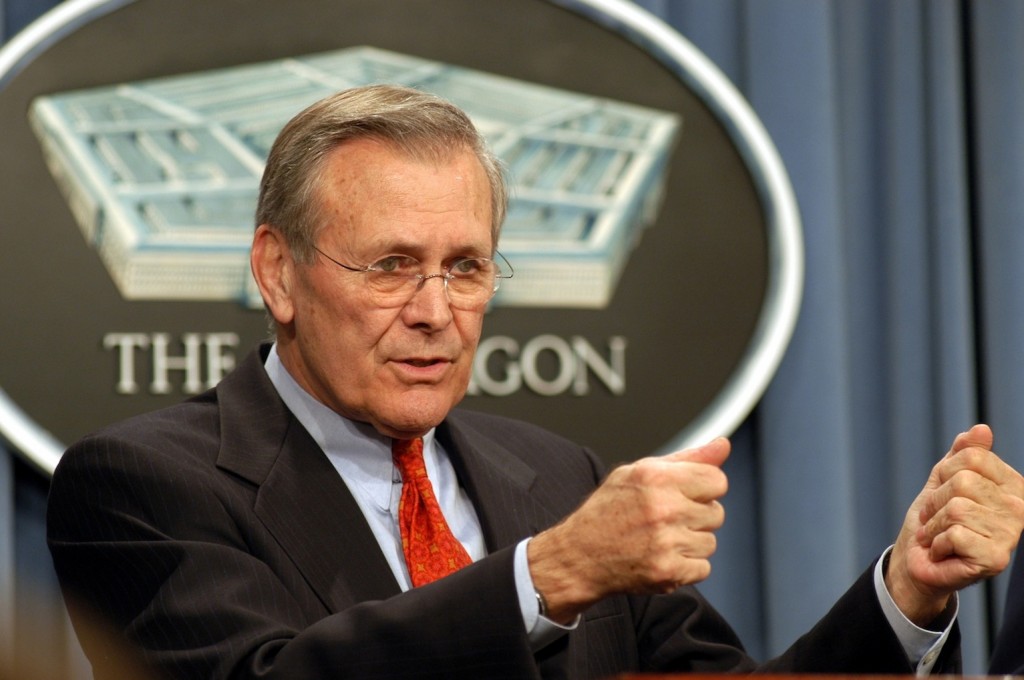
As conditions in Iraq spiraled downward in 2005, Secretary of Defense Donald Rumsfeld prodded the Pentagon press corps to adopt the long view. Instead of focusing on short-term setbacks and daily violence, with all the “gloom and doom” this involved, “we should ask what history will say.” Fighting in Iraq and Afghanistan was admittedly “tough and ugly,” but history would reveal that “America was on freedom’s side,” and that “literally millions of people were enjoying liberty” because of the brave actions of coalition forces.
Famously weak on predictions, Rumsfeld’s suggestion that history will judge the two wars a success and the harbinger of freedom for “literally millions,” seems unlikely. But having just passed the tenth anniversary of the American invasion of Iraq, the secretary’s question is worth pondering: what will history say about this war of choice? And more importantly, what should be remembered?
As we know, history doesn’t write itself and how a society comes to understand its own past is the product of many voices: professional historians to be sure, but also politicians, journalists, filmmakers, schoolteachers and the participants themselves. With regard to the Iraq War the process of remembering has only begun, but the responses this past week provide distressing hints of a possible “verdict,” at least here in the United States.
For a country hooked on anniversaries, this one passed with little fanfare, opening the possibility that the Iraq War might soon be relegated to the margins of national consciousness, along with the Korean War and other military undertakings. There are certainly powerful incentives for those in high places to change the subject and move on.
But if not ignored, the Iraq War is already fitted to a dominant narrative, which emphasizes the “mistaken” nature of the enterprise, undertaken out of an excess of fear and zeal in the aftermath of 9/11. In that account, the Bush sdministration’s careless and possibly dishonest evaluation of intelligence about “weapons of mass destruction” features prominently, as does the gullibility of the mass media and major public figures. Also highlighted are the thousands of dead Americans and Iraqis, the trillions of dollars already spent or committed and the damage to the U.S. economy of paying for the war with borrowed money. Criticisms abound, but it is worth pondering some missing pieces.
Less emphasized or omitted entirely is the suffering of the Iraqi people — not just the body count, but also the myriad ways in which ordinary life in that country was upended, once the Americans and British had arrived. Beyond the numbing death toll, the experience of live Iraqis might stir an empathic response and deepen Americans’ understanding of what military intervention in foreign lands has entailed. Yet pour through the stories of the tenth anniversary and see how scarce is that discussion.
Continue reading “Donald Rumsfeld: ‘What Will History Say?’”




